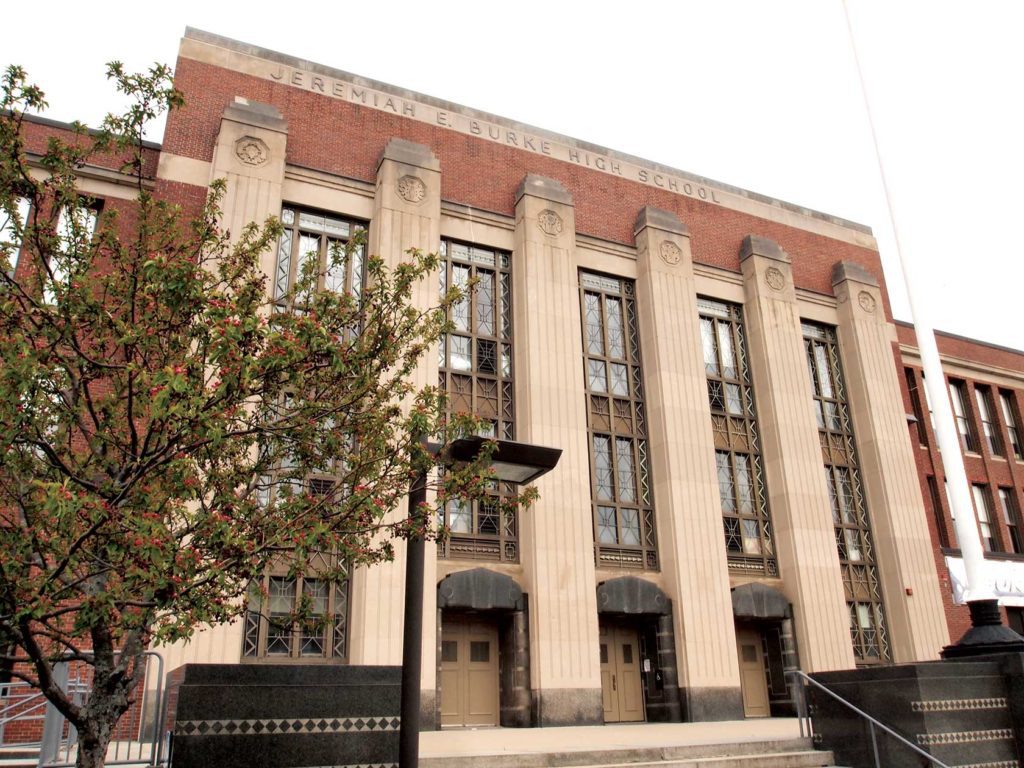Gov’s remote learning ban sparks concern
Parents of children with respiratory ailments say they’ll keep children home

As elementary school students returned to class in Boston and in cities and towns across the state this month, Courtney Feeley Karp’s 7-year-old daughter, a student at the Henderson School in Dorchester, stayed home.
“We want nothing more than for her to be back at the Henderson,” Feeley Karp said. “But we’re being asked to test our child’s ability to withstand a viral infection.”
Feeley Karp’s child, who was born prematurely and spent month on a respirator, had a history of frequent respiratory infections in the pre-pandemic years. Now, as a 7-year-old who cannot yet be vaccinated against COVID, returning to in-class instruction is too risky, Feeley Karp said.
Because Gov. Charlie Baker has mandated in-person learning for all school districts, effectively banning remote instruction, students who remain home for health reasons, who are quarantined because of close contact with someone infected with COVID or who themselves suffer a COVID infection cannot log into class remotely.
While the governor would not issue a statewide mask mandate, leaving it to individual districts to determine whether or not masks are required, the state’s Department of Elementary and Secondary Education is taking a hardline stance on remote instruction.
“It’s hard for me to imagine a scenario where we won’t continue to expect kids to be in school. They need to be in school,” Baker told CBS Boston last week.
Baker’s ban on remote learning falls in line with policies implemented by Republican governors across the country, notes Jack Schneider, an author and UMass Lowell associate professor in the School of Education.
“Republicans have made it clear in states across the nation that symbolism matters to them,” he said. “They’ve taken the opportunity to take a stand against teachers and stand against what they see as overreach by the scientific community. That scores points with their base.”
Teachers in Massachusetts have advocated for masks, vaccinations and working ventilation systems as preconditions for safe school reopening, Schneider said.
“This is a chance for Charlie to flex his muscles and say he gets to decide, not them,” he said.
Baker could also be motivated by genuine concern for students, Schneider acknowledges, many of whom have suffered from the social isolation that comes with shuttered school buildings. But at the same time, the lack of flexibility the Baker administration is showing has consequences for districts with large Black and Latino populations, he notes.
“Black and brown communities have been among the most vocal with concerns about sending their kids back to school,” he said.
The Baker administration gave districts a chance to apply for waivers for the in-person requirement, but Boston Public Schools did not submit an application.
A BPS spokesperson said the district has not had enough time to formulate a plan but will likely apply for the next academic year.
“Given the short nature of the timeline that was set by the state and the need to focus on closing out the 20-21 school year and plan for the 21-22 school year, BPS is taking additional time to determine next steps in pursuing a virtual option for students,” the spokesperson said in a statement. “We are continuing to evaluate whether to pursue operating a single district virtual school.”
In the meantime, parents with students for whom COVID infections pose an elevated risk are left in limbo. Bethany Van Delft, the parent of a 4th grader with a history of respiratory ailments, said in a social media post that she plans on keeping her daughter at home.
“This year, we requested accommodations to ensure she leans in a safe environment for her, until she can be vaccinated,” Van Delft wrote. “We were told the district is not allowing accommodations for COVID because they are confident their COVID measures are safe.”
Van Delft, however, says her school building is not well-equipped to keep students safe.
“She needs accommodations to stay safe in a 110-year-old building with a highly contagious virus, no distancing and no vaccine for children under 12,” she wrote. “Or she needs remote learning.”
Feeley Karp says her daughter will likely miss a year of school. She places the blame on Baker’s lack of flexibility around remote learning.
“It’s strikingly odd, given his stance on masks,” she said. “Nobody’s asking to close schools. We just want a remote option.”







